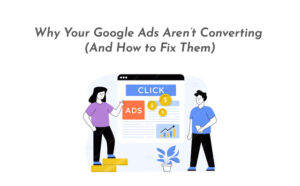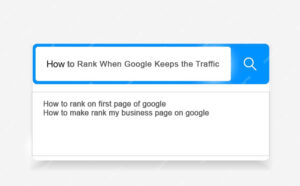Introduction
Search Engine Optimization (SEO) is a critical component of digital marketing, but it comes with its own set of challenges. Among these is the risk of incurring a Google penalty, which can severely impact your website’s visibility and, consequently, your business’s success. Understanding how to avoid these penalties is essential for maintaining a strong online presence and ensuring that your SEO efforts yield positive results.
Understanding Google Penalties
Google penalties are sanctions imposed on websites that violate Google’s Webmaster Guidelines. These penalties can result from both algorithmic updates and manual actions taken by Google’s team. The penalties can lead to a significant drop in rankings or even complete removal from search engine results pages (SERPs), making it imperative for website owners to adhere to best practices in SEO.
Common Causes of Google Penalties
There are numerous factors that can trigger a Google penalty. These include keyword stuffing, duplicate content, a poor backlink profile, and technical issues like slow page load times or mobile unfriendliness. Penalties can be broadly categorized into two types: algorithmic and manual.
Algorithmic vs. Manual Penalties
Algorithmic penalties are automatically applied when Google’s algorithms detect violations, such as with updates like Panda, Penguin, or Hummingbird. Manual penalties, on the other hand, are applied by Google’s team after a manual review of your site. Understanding the difference between these penalties can help in diagnosing issues and taking corrective actions.
You would like to read: Creating a Successful Content Calendar for Your Blog
Avoiding Keyword Stuffing
Keyword stuffing refers to the practice of overloading a webpage with keywords in an attempt to manipulate rankings. While keywords are essential for SEO, excessive use can lead to penalties. It’s crucial to focus on optimal keyword density to ensure that content remains natural and user-friendly.
Optimal Keyword Density
The ideal keyword density varies, but it generally falls between 1% to 3%. Instead of repeating the same keyword, use variations and synonyms to maintain relevance while avoiding the appearance of spammy content.
Steering Clear of Duplicate Content
Duplicate content occurs when identical or very similar content appears on multiple pages within your site or across different websites. This can confuse search engines and dilute the effectiveness of your SEO efforts, leading to penalties.
Importance of Original Content
Creating unique, valuable content is key to avoiding duplicate content issues. Each page should offer fresh insights or information to ensure it stands out in search engine rankings. Tools like Copyscape can help identify and rectify duplicate content before it becomes problematic.
Maintaining a Clean Backlink Profile
Backlinks remain a critical factor in SEO, but not all backlinks are beneficial. Links from spammy or irrelevant sites can harm your SEO efforts and result in penalties.
Disavowing Toxic Links
Regularly audit your backlink profile using tools like Google Search Console. If you identify toxic links, use Google’s disavow tool to inform the search engine that these links should not be considered in your ranking assessment. This proactive approach can help maintain a clean backlink profile.
You would like read: SEO Tools You Need in Your Toolkit: A Comprehensive List for Keyword Research, Rank Tracking, and Website Optimization
Ensuring Mobile-Friendliness
With Google’s shift to mobile-first indexing, the mobile-friendliness of your website is more important than ever. Sites that are not optimized for mobile devices can suffer penalties as Google prioritizes mobile-optimized content in search results.
The Impact of Mobile-First Indexing
Ensure your site is responsive and provides a seamless experience across all devices. Use Google’s Mobile-Friendly Test to identify and fix any issues that could affect your site’s performance on mobile devices.
Optimizing Page Load Speed
Page load speed is a significant ranking factor in Google’s algorithm. Slow-loading pages not only frustrate users but also risk incurring penalties.
Importance of Fast Load Times
Optimize images, leverage browser caching, and minimize CSS and JavaScript files to improve load times. Google’s PageSpeed Insights tool can provide actionable recommendations to enhance your site’s performance.
Creating High-Quality Content
Content remains king in SEO, but not just any content—high-quality content that demonstrates expertise, authoritativeness, and trustworthiness (E-A-T) is what Google favors.
E-A-T (Expertise, Authoritativeness, Trustworthiness)
Focus on producing content that is well-researched, informative, and relevant to your audience. Citing credible sources, providing in-depth analysis, and keeping your content updated can all contribute to higher E-A-T scores, thereby reducing the risk of penalties.
Avoiding Cloaking and Sneaky Redirects
Cloaking refers to showing different content to users and search engines, while sneaky redirects send users to a different URL than the one they clicked on. Both practices are considered deceptive and can result in severe penalties.
Transparency in Content Delivery
Ensure that the content you deliver to users is the same as what is indexed by search engines. Avoid using deceptive practices that can undermine the user experience and trigger penalties.
Monitoring and Updating SEO Practices
SEO is not a set-it-and-forget-it task. It requires ongoing monitoring and updating to keep up with changes in Google’s algorithms and guidelines.
Staying Updated with Google’s Guidelines
Regularly review Google’s Webmaster Guidelines and stay informed about algorithm updates. This proactive approach can help you avoid penalties and maintain a strong SEO strategy.
Conclusion
Avoiding Google penalties is crucial for the long-term success of your website’s SEO efforts. By adhering to best practices and focusing on providing value to your audience, you can safeguard your site against penalties and ensure it remains competitive in search engine rankings. Regular audits, high-quality content, and a commitment to ethical SEO practices are the cornerstones of a penalty-free site.










